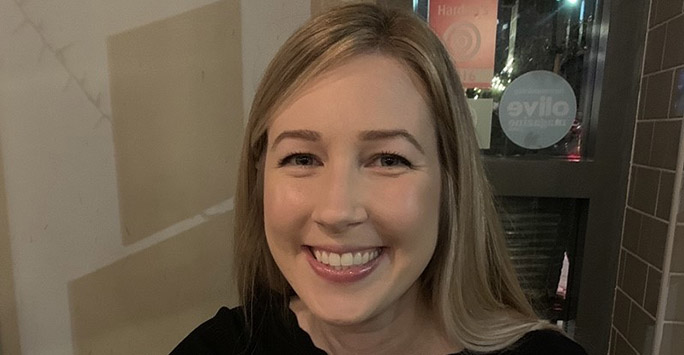
Gemma, lecturer in Clinical Health Psychology and Honorary Clinical Psychologist at the Liverpool Clinical Health Psychology Service at the Royal Liverpool University Hospital, gives us a behind the scenes look at her research interests and achievements in her career so far.
"I began my current post in 2016 after completing my PhD in 2013 and Doctorate in Clinical Psychology in 2016 at the University. In close collaboration with clinical and academic colleagues, I conduct research in clinical health psychology (specifically psycho-oncology and other chronic health conditions). The aim of my research is to improve clinical practice and the psychological care of patients with co-morbid mental and physical health difficulties.
Broadly speaking, I conduct research at the interface between mental and physical healthcare. I am particularly interested in:
- Understanding how patients make difficult decisions with regards to their healthcare, and how clinical communication can be improved to help optimise decision-making
- The mechanisms that underpin emotional distress in patients with physical health difficulties
- Developing and evaluating effective interventions for emotional distress for patients with physical health difficulties.
I’ve long had an interest in applying psychological theory and practice to better understand and optimise aspects of health, illness and healthcare. My PhD examined the influence of medical students’ and doctors’ attachment styles and emotional intelligence on their clinical communication with patients. This was particularly centred on when discussing emotive issues.
My Doctorate in Clinical Psychology thesis focused on understanding communication between carers and people with long-term mental health difficulties. I was delighted to be offered my current post, as it has enabled me to establish close links with the NHS, which I’ve been able to use to shape my research priorities and apply for funding to conduct clinically-relevant studies. It’s also afforded me the opportunity to supervise doctoral students to conduct clinically-relevant research across a range of topics.
Together with Dr Peter Fisher, I am currently collaborating with colleagues from a number of NHS trusts. We're working on a range of studies of adolescents and adults with co-morbid mental and physical health difficulties, including cancer, diabetes and epilepsy. Several of these studies are designed to inform treatment development by understanding the mechanisms underpinning emotional distress across a range of physical health conditions.
Other studies focus on decision-making by, for example, understanding how uveal melanoma patients make decisions about whether or not to undergo prognostic testing, and the impact of prognosis on emotional distress levels over five years.
I am also co-investigator on a nested qualitative study within a £1.48 million multi-centre international randomised controlled trial, funded by Cancer Research UK. This study aims to optimise patients’ decision-making with regards to trial participation.
Prior to the pandemic, I was about to lead a randomised treatment study, funded by the Wellcome Trust, in patients with haematological cancer in conjunction with colleagues from The Clatterbridge Cancer Centre NHS Foundation Trust. However, given the current landscape, I made the decision to instead donate these funds to the University’s COVID-19 fund.
Understandably, but unfortunately, the COVID-19 pandemic means that some of these studies are currently on hold. Instead, our research response has shifted to the critical need to understand the impact of COVID-19 on patients with physical health difficulties and the healthcare staff that care for them. I am therefore currently leading on a grant application in conjunction with clinicians from The Clatterbridge Cancer Centre. This is designed to enhance multi-disciplinary care for patients newly diagnosed with cancer, by understanding their psychological and communication needs.
Due to the urgency of the situation, we are currently in the process of identifying suitable funding sources that will enable us to begin the research as soon as possible. I am also co-applicant on another nationwide study investigating the psychological consequences of intensive care admission due to COVID-19 in the UK, which has been submitted to the NIHR COVID-19 Rapid Response Rolling Call.
I am a strong believer that good quality research needs to be conducted by a collaborative team, rather than one individual. The ongoing research outlined above has the potential to change clinical practice and directly benefit patients, and as a group we plan to monitor the reach and significance of this research. As an early career researcher, my goal moving forward is to continue to act as co-investigator on clinically-meaningful grants and studies, whilst building up my Principal Investigator status."
To find out more about Gemma's work, visit her staff profile.